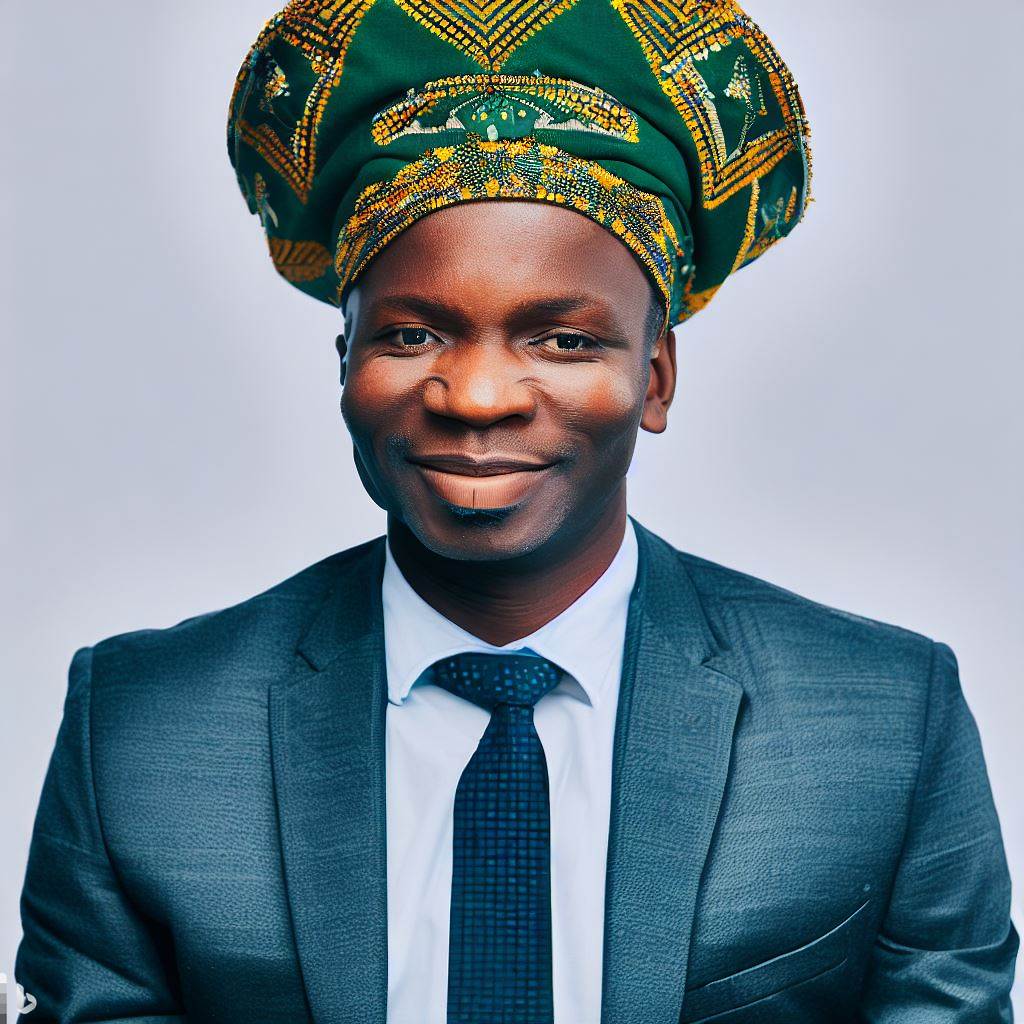Introduction
The importance of cultural knowledge for translators in Nigeria is a significant topic to explore.
In today’s diverse society, there is a growing need for effective translation services.
This blog post will discuss why cultural knowledge is crucial for translators and highlight its main points.
Understanding the Cultural Context in Nigeria
A. The diverse ethnic and linguistic groups in Nigeria
- Nigeria is home to over 250 ethnic groups, each with its own language and cultural practices.
- The ethnic diversity includes groups like Hausa, Yoruba, Igbo, and many others.
- Translators need to be aware of these differences to accurately convey meaning in translations.
B. The significance of cultural knowledge in translating accurately and effectively
- Cultural knowledge allows translators to understand the context of the source text.
- Translating without cultural knowledge may lead to misunderstandings or inaccuracies in the target text.
- Translators must consider cultural nuances and adjust their translations accordingly.
C. Importance of understanding local customs, traditions, and beliefs
- Local customs, traditions, and beliefs shape the way language is used and understood.
- Translators need to familiarize themselves with these aspects to ensure accurate translations.
- Misinterpreting or neglecting cultural factors can result in a loss of meaning or offense to the target audience.
Read: Advancements in the Field of Interpretation in Nigeria
Cultural Nuances in Translation
A. Impact of Cultural Differences on Language Translation
- Cultural differences can greatly influence the accuracy and effectiveness of language translation.
- Translators must have a deep understanding of the cultural context in order to convey the intended message.
- Words or phrases that are culturally significant in one language may not have an equivalent in another language.
- Translators need to be aware of cultural nuances to accurately convey the meaning without losing its essence.
- Without cultural knowledge, translations may be misleading or may not convey the intended message.
B. Challenges Faced by Translators with Cultural-Specific Terms and Idioms
- Translating cultural-specific terms and idioms can be particularly challenging.
- These terms and idioms often carry deep cultural meanings that may not exist in the target language.
- Literal translation of these terms can result in confusion or misinterpretation.
- Translators must find equivalent expressions in the target language that capture the cultural essence.
- Without cultural familiarity, translators may struggle to find appropriate translations for such terms and idioms.
C. The Need for Cultural Sensitivity to Avoid Misunderstandings
- Cultural sensitivity is crucial for translators to accurately convey meaning and avoid misunderstandings.
- Translators need to understand the cultural implications behind words and phrases.
- Failure to consider cultural sensitivity can lead to misinterpretations and miscommunication.
- Translators should be conscious of different cultural norms and values to ensure accurate translations.
- Cultural sensitivity helps bridge the gap between languages and fosters effective communication.
Therefore, cultural knowledge plays a vital role in translation, especially in Nigeria. Translators need to understand the impact of cultural differences on language translation.
They face challenges when dealing with cultural-specific terms and idioms and must find suitable translations that capture the cultural essence.
Cultural sensitivity is essential to avoid misunderstandings and misinterpretations. Translators should strive to bridge the gap between cultures to ensure accurate translations and effective communication.
Read: Spotlight: Nigerian Interpreters Making a Global Impact
Enhancing Communication and Building Trust
A. How cultural knowledge enables translators to establish a connection with the target audience
Cultural knowledge enables translators to establish a connection with the target audience.
Cultural knowledge is essential for translators in Nigeria, as it enhances communication and builds trust with the target audience.
By understanding the cultural background of the audience, translators can establish a strong connection and effectively convey the message.
Without cultural knowledge, translators may struggle to accurately interpret and translate the source text.
However, by being well-versed in the cultural norms and values of the audience, translators can adapt their language and expressions to effectively communicate.
For instance, Nigerian translators who possess cultural knowledge can utilize appropriate greetings and salutations that resonate with the audience.
This not only creates a sense of familiarity but also establishes a connection that enables effective communication.
B. The role of cultural understanding in building trust and rapport with clients
Cultural understanding plays a vital role in building trust and rapport with clients. In addition to establishing a connection, cultural understanding is crucial in building trust and rapport with clients.
Clients appreciate translators who take cultural sensitivities into account, as it demonstrates respect and valuing of their traditions and beliefs.
By aligning with the cultural perspectives of clients, translators foster a collaborative atmosphere, enhancing trust and ensuring a successful outcome.
Furthermore, cultural knowledge plays a vital role in avoiding misunderstandings and misinterpretations in the translation process.
By understanding the cultural context, translators can accurately interpret idiomatic expressions, ensuring that the intended message is conveyed effectively.
For example, in Nigeria, certain expressions may have specific cultural connotations that require careful interpretation.
A translator without cultural knowledge may misinterpret these expressions, resulting in miscommunication and a loss of meaning.
C. Examples of how cultural knowledge enhances the overall communication process
Cultural knowledge also helps translators avoid offensive or inappropriate language that could hinder effective communication.
By understanding the cultural nuances, translators can select the appropriate words and tone, ensuring that the translation resonates with the target audience.
Moreover, cultural knowledge enables translators to adapt the content to suit the preferences of the target audience.
By familiarizing themselves with the cultural preferences and values, translators can deliver translations that are culturally appropriate and engaging for the audience.
In fact, cultural knowledge is vital for translators in Nigeria. It enables them to establish a connection with the target audience, build trust with clients, and enhance the overall communication process.
By understanding the cultural context, translators can effectively convey the intended message while respecting and valuing the cultural differences.
Cultural knowledge empowers translators to bridge the gap between languages and cultures, ensuring accurate and meaningful translations.
Read: A Guide to Success in Nigerian Stand-up Comedy

Bridging the Cultural Gap
A. Acting as Bridges between Different Cultures
Translators with cultural knowledge play a crucial role in facilitating communication between different cultures.
Their understanding of both the source and target cultures enables them to accurately convey meanings and nuances.
By bridging the gap, translators help to overcome language barriers and foster understanding and mutual respect.
They act as facilitators, ensuring that messages are accurately transmitted and effectively received across cultural boundaries.
Through their work, translators become catalysts for cultural exchange, making multicultural interactions possible and fruitful.
B. Promoting Unity and Harmony in a Diverse Society
Cultural understanding, facilitated by translators, plays a vital role in promoting unity and harmony within a diverse society.
When translators accurately convey cultural nuances, they help to build empathy and respect among different cultural groups.
By enabling effective communication, translators bridge the gaps that often lead to misunderstandings and conflicts.
Through their translations, they foster appreciation for cultural diversity and encourage peaceful coexistence.
Translators act as agents of social cohesion, supporting the development of a harmonious and inclusive society.
C. Preserving and Promoting Cultural Heritage through Accurate Translations
Translators also play a vital role in preserving and promoting cultural heritage through their accurate translations.
By ensuring the faithful transmission of cultural content, they contribute to the preservation of cultural knowledge and traditions.
Through their translations, they expose audiences to the richness and uniqueness of diverse cultures.
Translators help to strengthen cultural identity by making cultural works accessible to a wider audience through translation.
By promoting cultural heritage, translators contribute to the enrichment and preservation of a nation’s cultural tapestry.
In a nutshell, translators with cultural knowledge act as bridges between different cultures, fostering understanding, unity, and harmony.
They enable effective communication by accurately conveying cultural nuances and promoting empathy and respect.
Moreover, translators play a crucial role in preserving and promoting cultural heritage, ensuring the transmission of cultural knowledge and traditions.
Through their work, translators contribute to the enrichment of society and the preservation of cultural diversity.
Thus, cultural knowledge is of utmost importance for translators in Nigeria and beyond.
Read: How to Break into Nigeria’s Music Industry
See Related Content: Defining the Role of a Circus Performer in Nigeria Today
Challenges and Solutions
A. Common challenges faced by translators regarding cultural knowledge in Nigeria
- Limited exposure to diverse cultural practices and traditions.
- Difficulty understanding unique cultural references and idiomatic expressions.
- Dealing with sensitive or taboo subjects that require cultural sensitivity.
- Lack of awareness of cultural nuances and their impact on communication.
- Working with dialects or local languages that require specialized cultural knowledge.
- Keeping up with rapidly changing cultural trends and societal norms.
B. Practical solutions and strategies for acquiring and maintaining cultural knowledge
- Immersing oneself in the local culture through travel, living in Nigeria, or interacting with locals.
- Participating in cultural events, festivals, and ceremonies to gain firsthand experience.
- Building relationships with natives who can provide insights into their culture.
- Using online resources, books, and documentaries to learn about Nigerian culture.
- Attending cultural workshops and seminars to enhance cultural understanding.
- Seeking guidance from experienced translators or mentors in the field.
C. The importance of continuous learning and staying updated with cultural trends
Continuous learning is crucial for translators to effectively bridge the cultural gap in their work:
- Regularly updating knowledge ensures accurate translations that reflect contemporary cultural practices.
- Staying updated with cultural trends helps translators adapt their language to the changing needs of target audiences.
- Understanding cultural shifts allows translators to avoid outdated or inappropriate translations.
- Close attention to cultural developments ensures translations that resonate with local audiences.
- Translators who keep up with cultural trends are better equipped to handle evolving language nuances.
All in all, cultural knowledge is vital for translators working in Nigeria. While challenges exist, practical solutions and strategies, along with continuous learning, empower translators to excel in their field.
Conclusion
This blog post highlighted the significance of cultural knowledge in translation work in Nigeria.
It reinforced the idea that cultural understanding is crucial for translators in Nigeria to accurately convey the intended message.
As a final thought, it is essential for readers to acknowledge and prioritize cultural understanding in translation work, as it enhances communication and fosters mutual understanding in today’s diverse world.
Let us value cultural knowledge in translation and embrace its importance.




